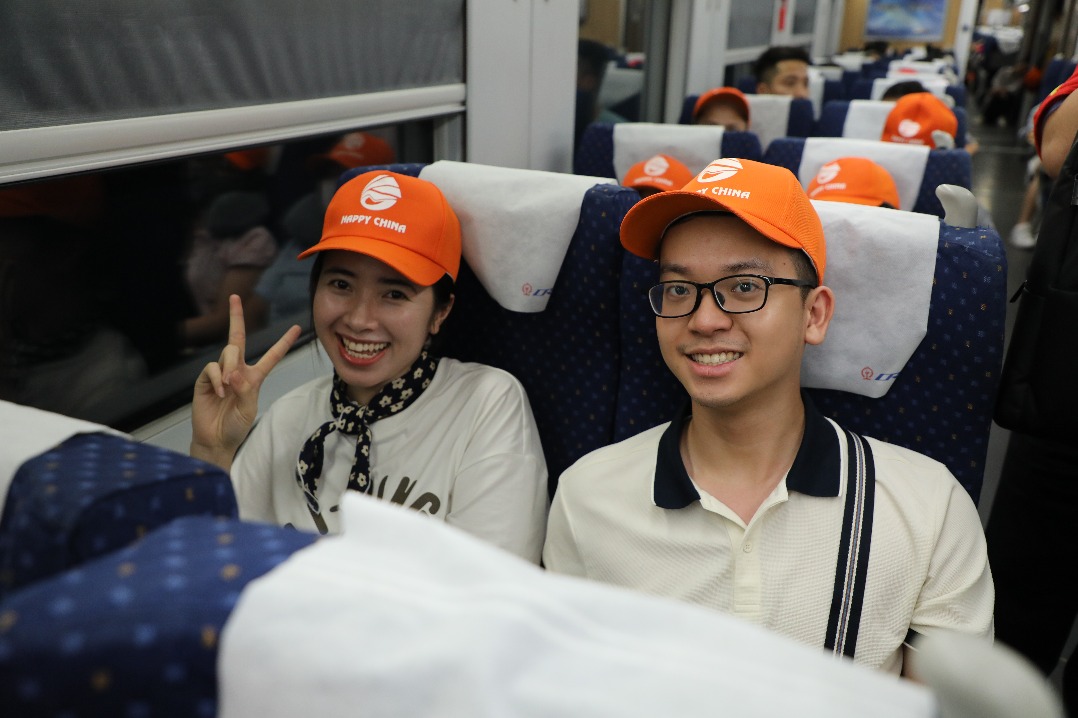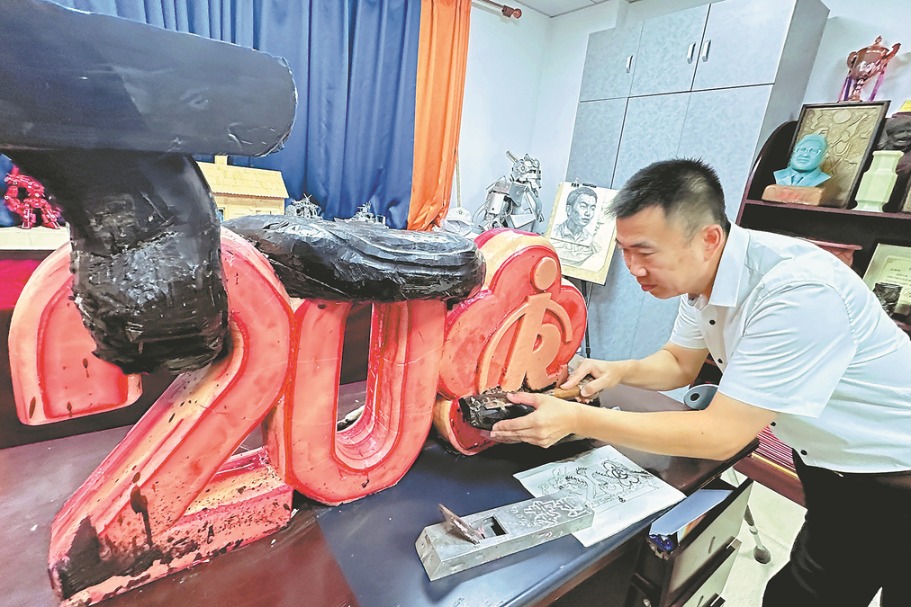AI healthcare solutions make progress, but caution urged
Regulatory control, ethics issues still need to be tackled, experts say


Xu Ruru, 36, opened a taxi door to help his frail, elderly mother step onto the curb as a Beijing wind howled last winter.
In his hands, he held a thick stack of medical reports. Before the duo loomed the gate of a major hospital and a sign that read — "No entry. Use other gate."
A factory worker from Hengshui Hebei province, Xu balanced his mother's arm with one hand and their luggage with the other. With numb fingers, he fumbled for his phone — and pulled off his gloves with his teeth to check an online map of the hospital. The nearest entry gate was a 10-minute walk away.
It was Xu's eighth trip from Hengshui to Beijing in two years. His mother had never fully recovered after a traffic accident, joining a multitude of patients who visit the capita seeking advanced medical care.
"I mapped everything in advance," Xu said. "Still, there is always something to break us."
On this visit, his mother needed a CT scan, X-ray and a blood test — each on separate hospital floors. Missing one appointment risked cancellation of the others.
In an online scramble, Zhao seized the 8:30 am CT slot and secured one of four appointment times.
"If we'd arrived minutes later after her other tests," he said, "we'd have lost it and needed to come back the next day."
Inside the hospital, similar scenes continue to unfold almost daily.
Patients become frustrated after forfeiting appointments because they have entered the wrong wing, or taken the stairs to the wrong floor.
Beijing's top hospitals see hundreds of thousands of patients every day. For locals it can be a challenge, for outsiders like Xu and his mother, a visit to a hospital can be a maze of wrong turns, ticking time and tricky logistics.
Easier access
What some patients accept as "normal" — multiple check-ins, scattered departments, tight scheduling — is what Tsinghua University's Institute for AI Industry Research aimed to address when it launched Agent Hospital 1 on June 30.
Agent Hospital 1 is a digital platform that patients can access to act as a personal health assistant, tracking their medical history and helping them locate the most suitable treatment facility or personnel.
For medical professionals, the platform performs as an assistant, providing advice and doing other less-pressing tasks.
The platform has a total of 42 AI "doctor agents" covering 21 specialist areas who can provide users with guidance and information. Agent Hospital 1's claimed purpose is to achieve the "impossible triangle", described by medical professionals as the meeting of "quality, affordability and access".
"When using the patient-client services, one will have access to several helpful features designed to improve the healthcare experience," said Liu Yang, executive dean of the institute, which developed the platform, one of the first of its kind in the world.
"It helps create and manage patients' personal health records, using past checkup information to analyze health and provide early warnings about potential concerns."
With a patient's permission, the platform's "patient assistant" gathers and organizes basic medical details for doctors ahead of time, making the appointment process more efficient.
If the patient is unsure where to start, the service offers an AI "nurse assistant" that suggests the right hospital department based on the symptoms described.
The assistant automatically collects relevant information from patients, helping them to make the consultation smoother.
"We are also building AI assistants to reduce doctors' administrative burden," Liu said.
- AI healthcare solutions make progress, but caution urged
- Minister calls for stronger efforts to defend peace
- Ten photos from across China: Sept 12 – 18
- Special program marks science month debut
- HKSAR photo exhibition showcases China, Russia WWII cooperation
- Wingsuit Flying World Championship kicks off at Zhangjiajie Tianmen Mountain




































